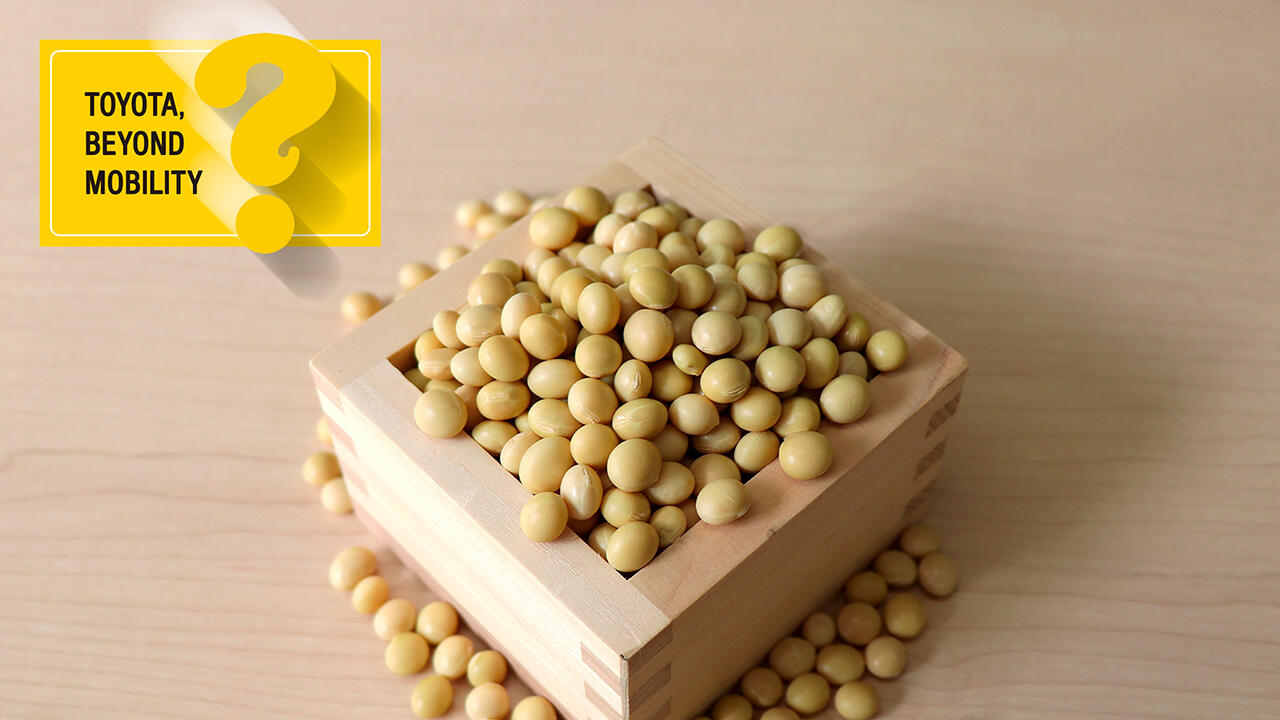
This is a series showcasing Toyota's research in non-automotive fields. This time, we sample the carmaker's homegrown soybeans.

Heat gushes forth as a white liquid is extracted. That’s right—soy milk.
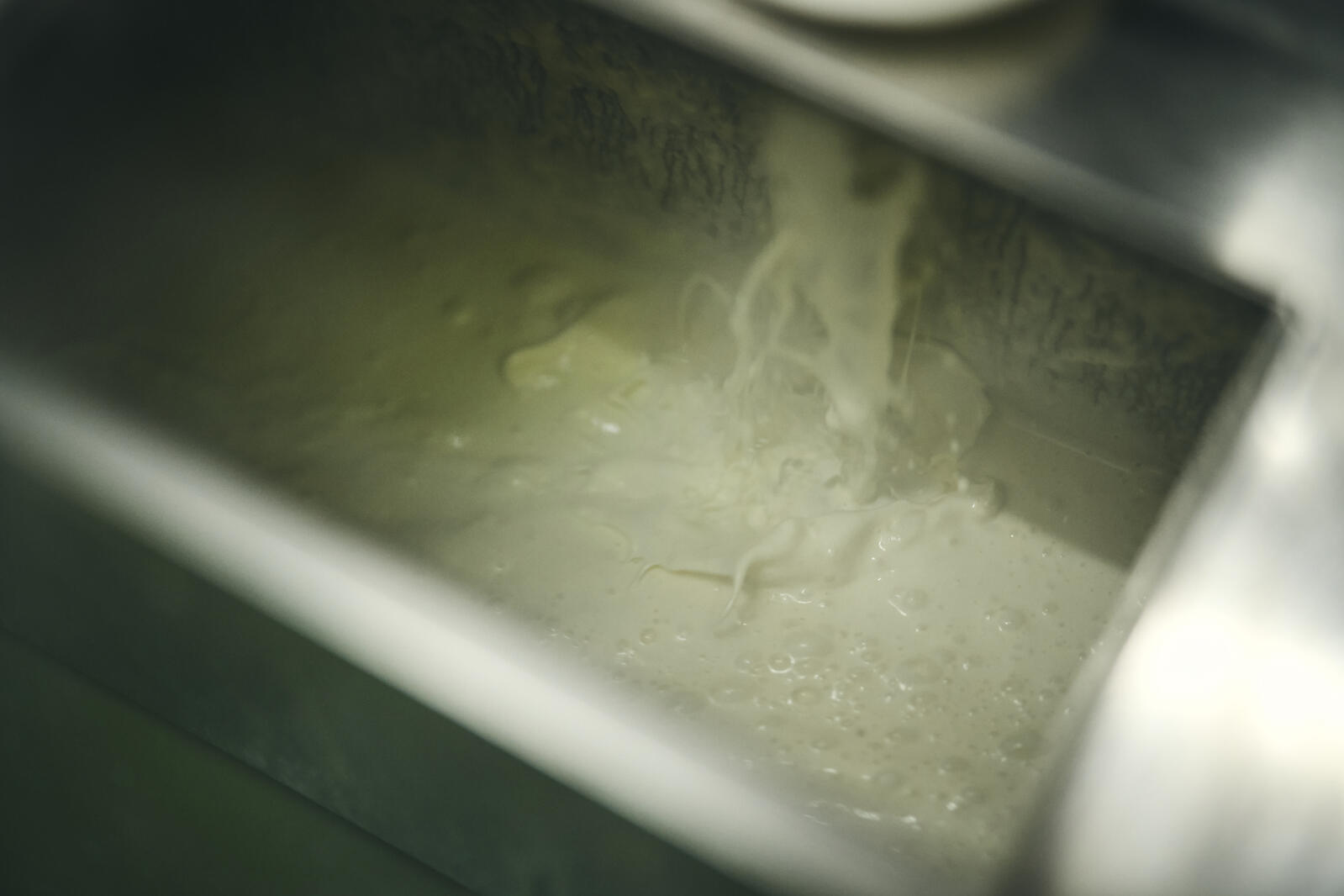
From soy milk and tofu skin to cream puffs and chicken broth ramen, this time, we’re venturing far beyond mobility. Toyota Times articles don’t get more mouthwatering than this.
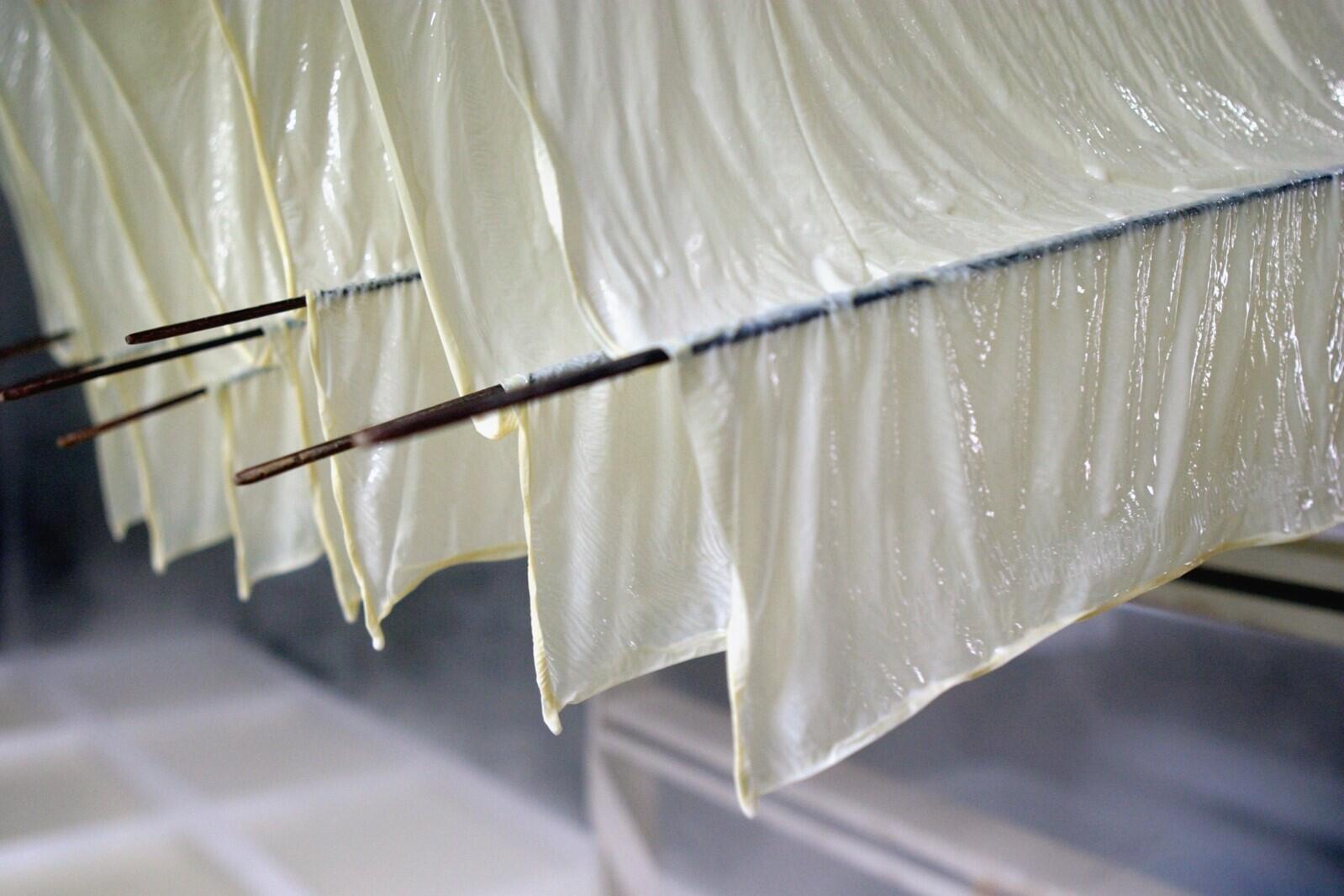
Toyota began researching and developing biotechnologies in the 1990s as part of its efforts to address environmental issues. In 2003, the company became the world’s first to use bioplastics for automotive parts and has since continued working to develop biofuels.
Now, expertise cultivated through carmaking and biotech development is also helping to make agriculture sustainable. One such initiative that caught our eye seeks to promote high value-added soybeans.
It does so against a challenging backdrop for Japanese agriculture.
Farmers face a host of hardships, including soaring materials prices, labor shortages, climate change, and a lack of young people to carry the industry forward. Amid the recent panic over rice shortages, reporting showed that the number of farmers leaving the sector reached a record high in January-August 2024.
A staple with staggeringly low self-sufficiency
To tackle these problems, in 2020, Toyota launched the HAPPY AGRI brand.
Hiroaki Koishihara, Assistant Manager, Agriculture & Biotechnology Business Div.
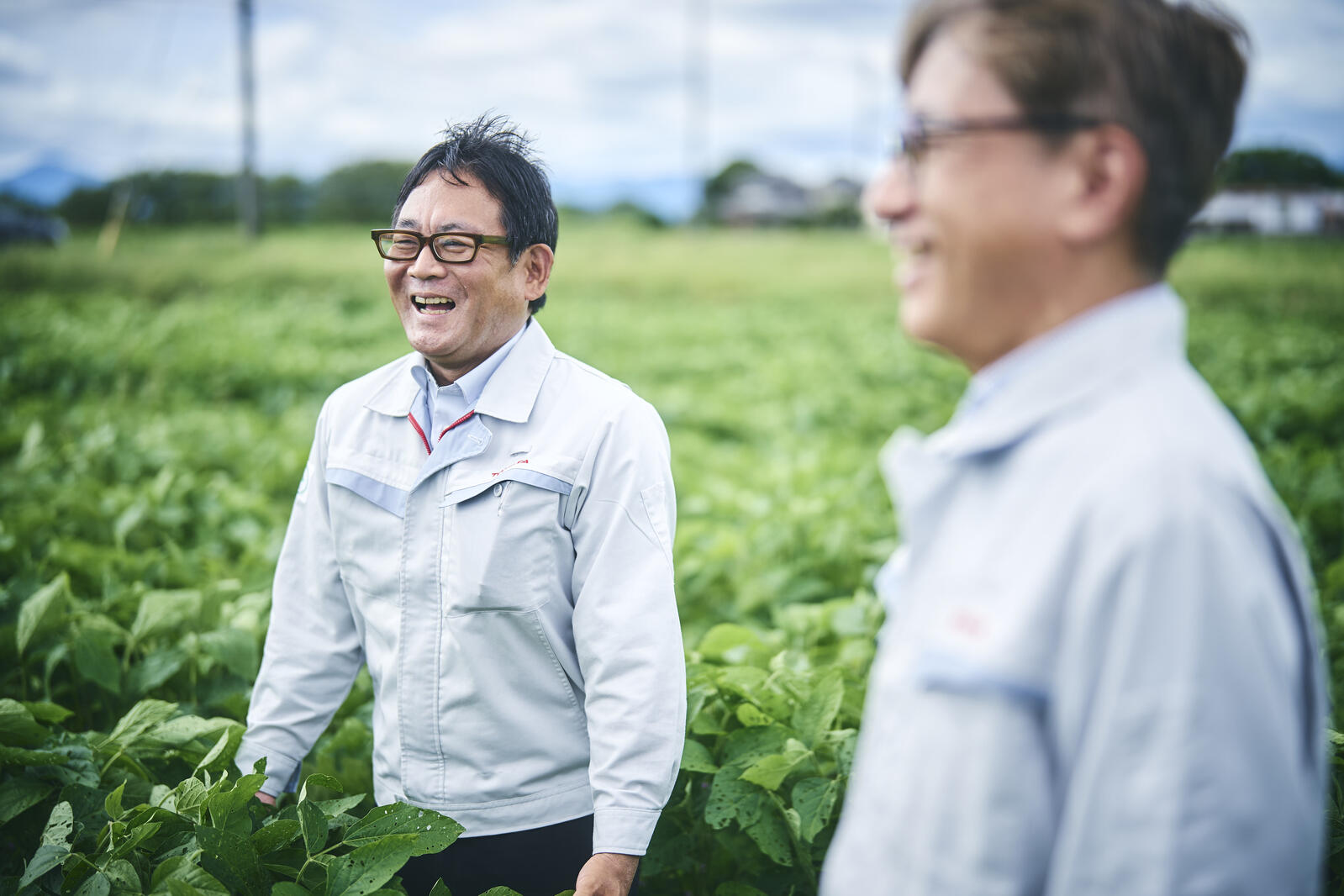
The HAPPY AGRI brand was born out of a desire to produce smiles and happiness for all through agriculture.
We work with producers, the government, Japan Agricultural Cooperatives (JA), food manufacturers, restaurants, and other partners to aid sustainable agricultural development. Our aim is to achieve greater productivity, a stable food supply, and environmentally friendly farming.

One such effort is the Domestic Soybean Production Support Project.
Takehiko Shimada, Project Manager, Agriculture & Biotechnology Business Div.
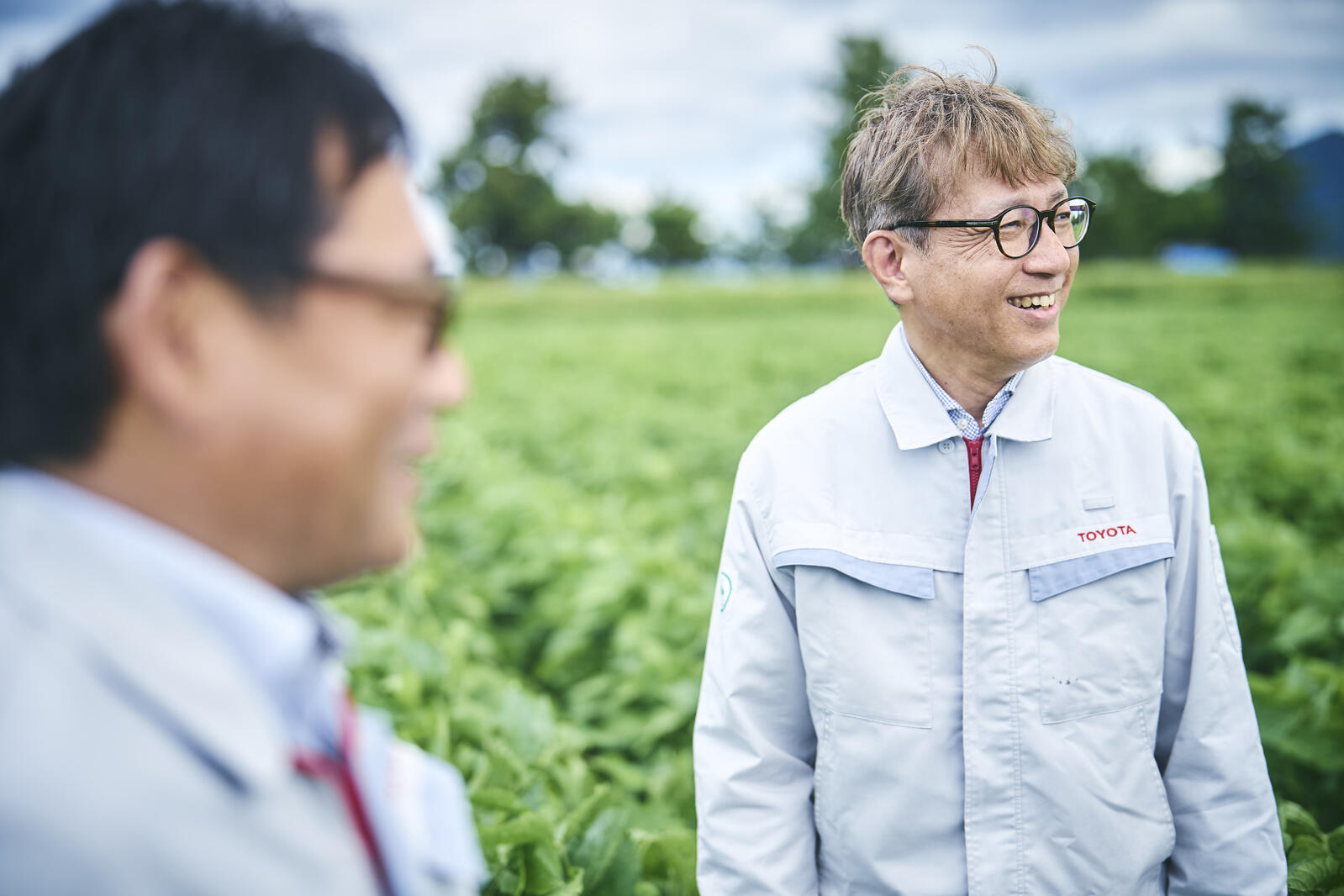
Soybeans are high in protein and offer an excellent nutritional balance. Despite their ubiquity in the Japanese diet, just 6% * of the soybeans we consume are produced domestically. Increasing self-sufficiency instead of relying on imports would help reduce transportation costs and CO2 emissions
*Weight basis, FY2022, Ministry of Agriculture, Forestry and Fisheries
To expand domestic production, we collaborated with Saga University and Kyushu University to develop an attractive new variety of high oleic soybeans.
We are working with like-minded partners to promote the new variety by integrating the entire process from production to sales.
When Shimada explained the characteristics of high oleic soybeans, we were amazed.
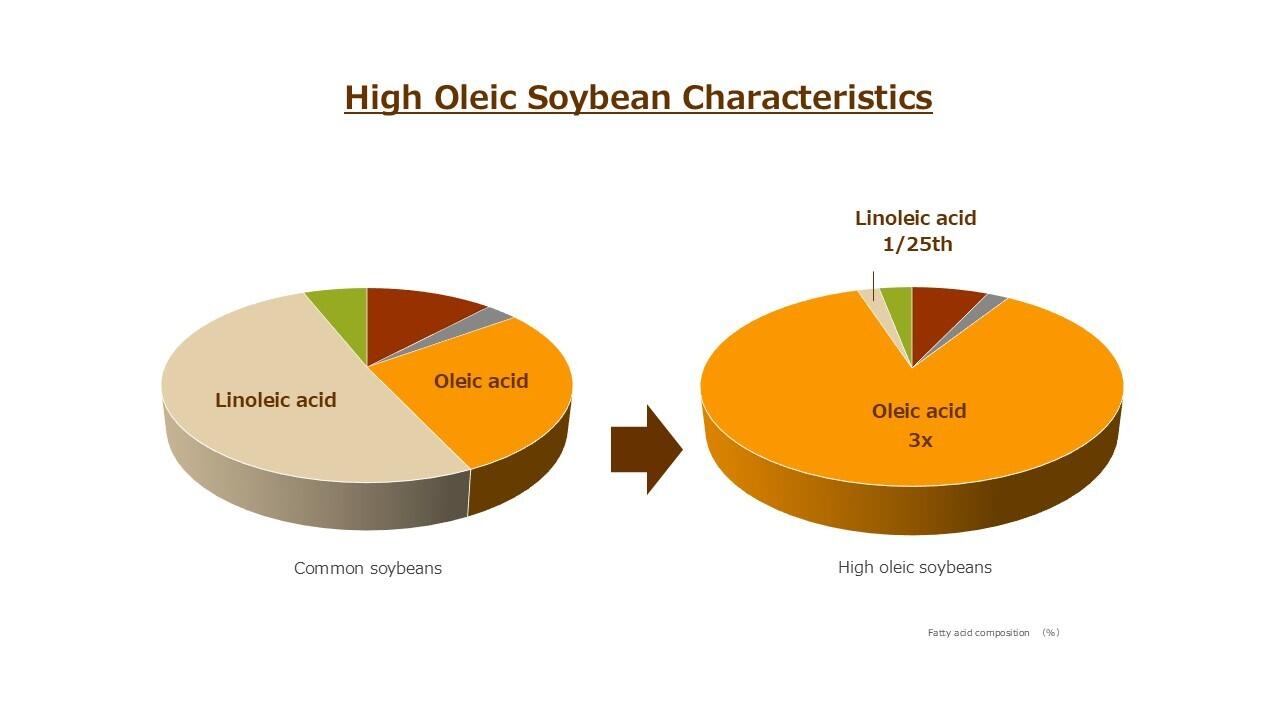
Compared to regular soybeans, they are far richer in oleic acid, which is also the main component of olive oil.
Known for its health benefits, oleic acid is also slow to oxidize, which helps curb the beany, grassy flavor peculiar to soybeans. This opens up potential uses in a wide range of foods.
These characteristics of high oleic soybeans have been put to good use in a newly launched product.
A carmaker comes a-calling
We visited MARUSAN-AI, a company based in Okazaki, Aichi, whose products will be a familiar sight to anyone who has stepped foot in a Japanese supermarket.
Yumi Taniguchi, Development Management Div., MARUSAN-AI
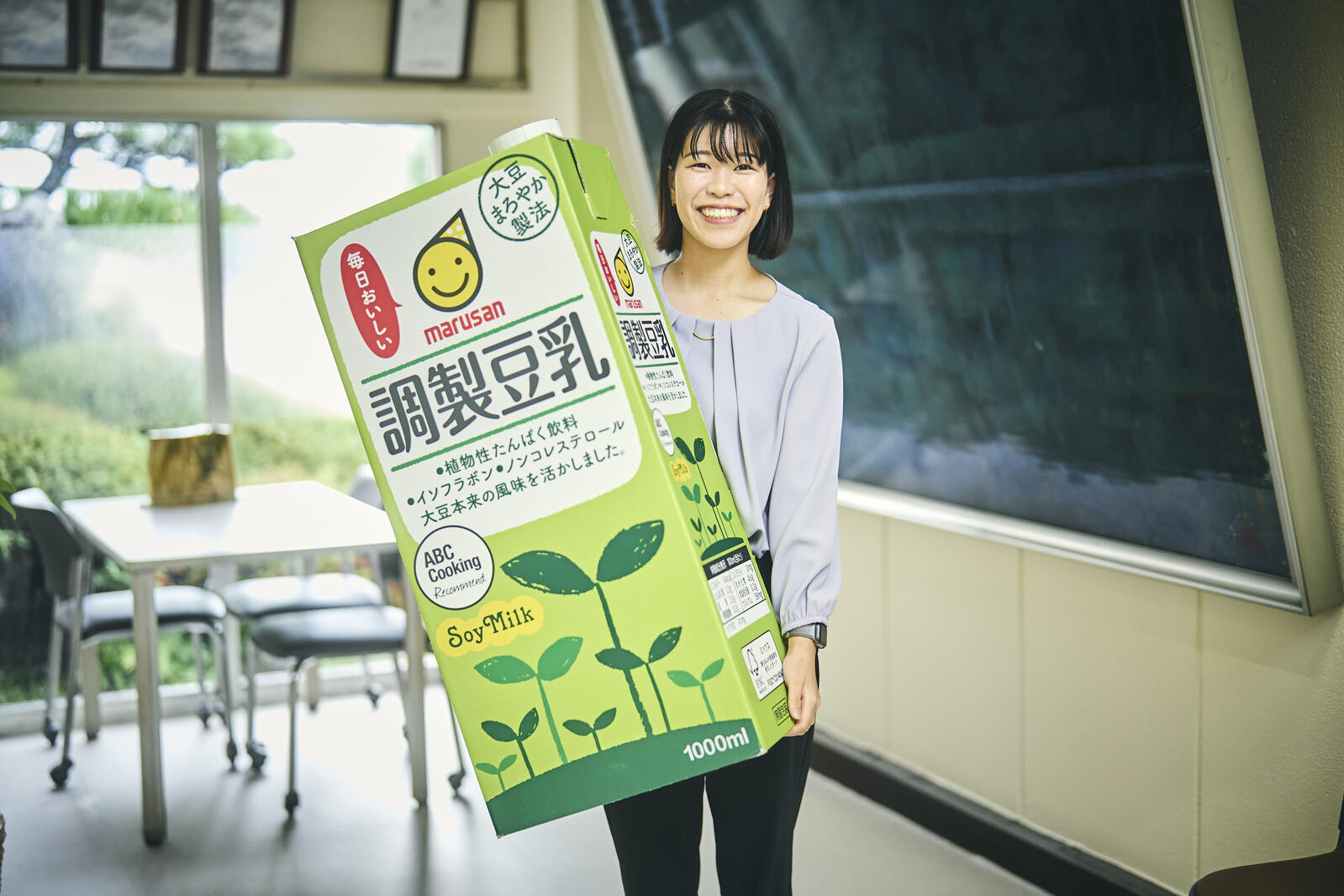
We usually source our soybeans from trading companies, but this was the first such proposition from a carmaker (laughs).
Soy milk made from high oleic soybeans has a really pleasant flavor, with less tartness or bitterness, yet it still retains the richness and umami. It goes down very easily without any special processing.
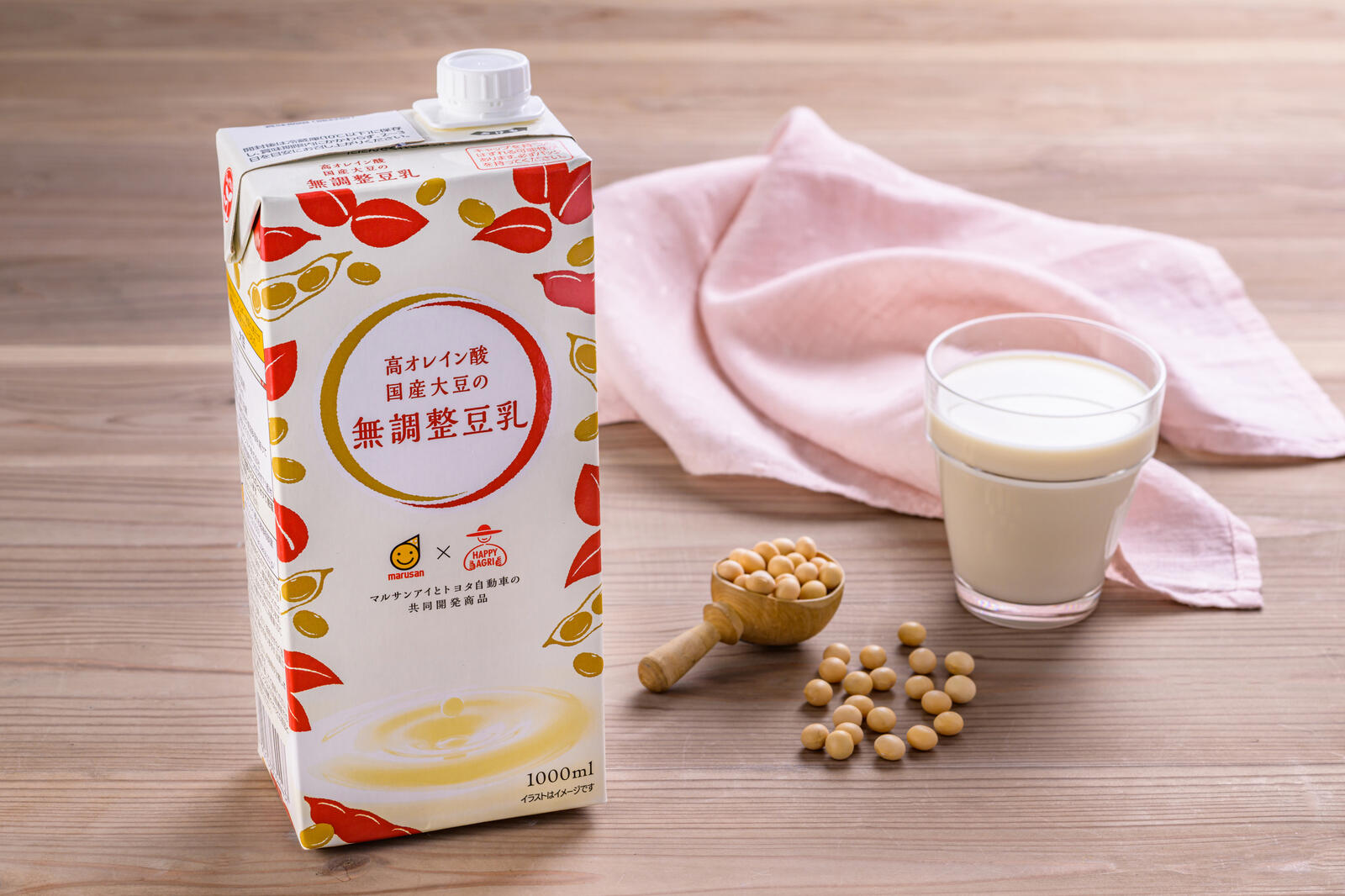
The product is pure soy milk, containing no ingredients other than water and soybeans, showcasing their flavor to the fullest. It also makes for a smooth, refreshing drink.
“This was the first time we turned our attention to the lipids in soybeans. It was a new challenge for us,” says Taniguchi with a smile.
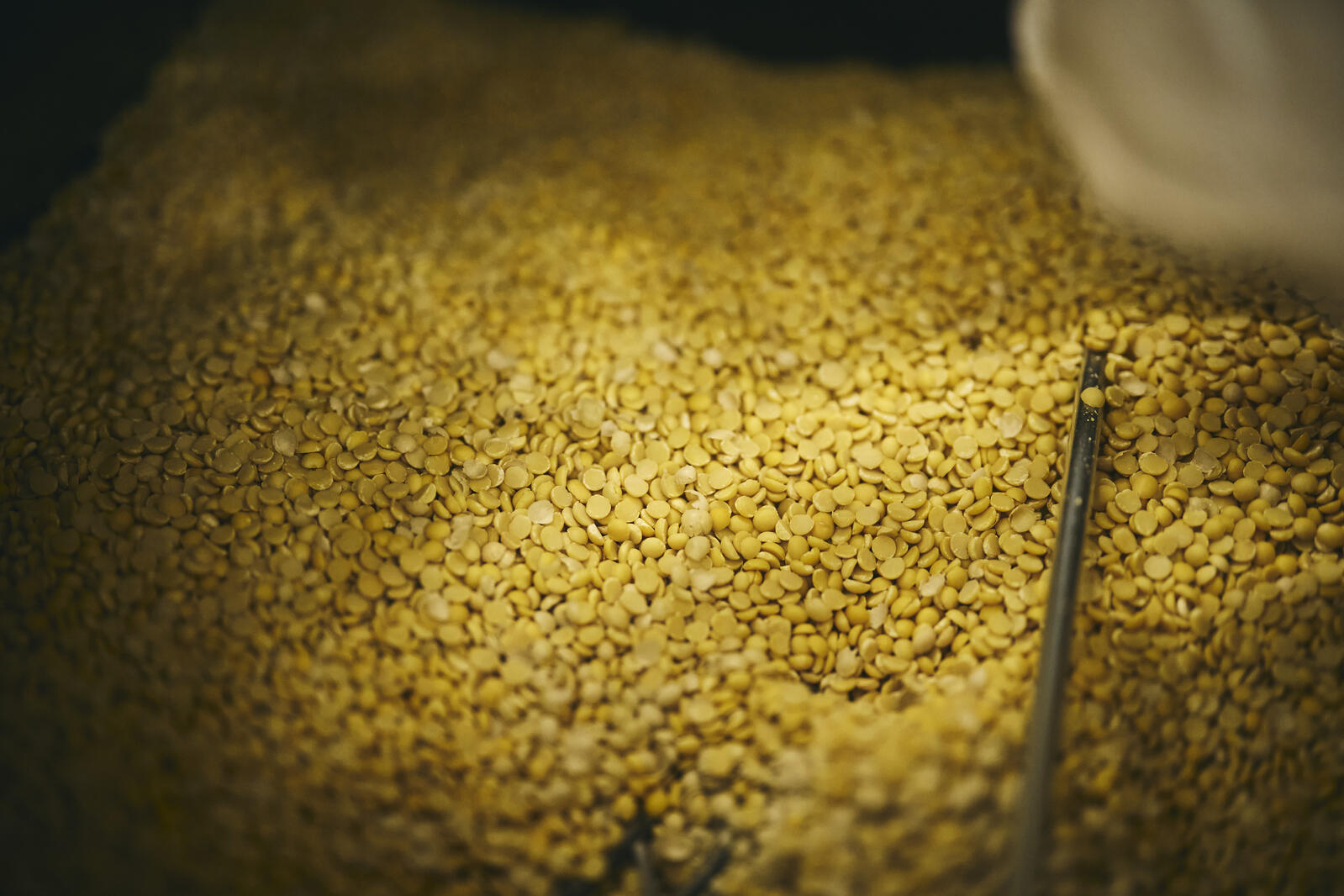
“Pure Soy Milk made with Homegrown High Oleic Soybeans” can be purchased online from October 1 (Japan only). Be sure to try the smooth, rich flavor for yourself.
Next, we serve up yuba (tofu skin) from a venerable Kyoto establishment, followed by cream puffs and chicken broth ramen. Even Morizo enjoys soy-based foods to sustain him through endurance races!

